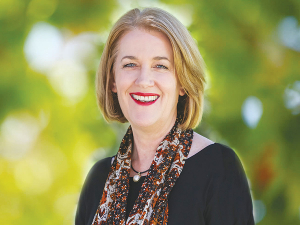Professor Jane Mills, pro vice-chancellor of Massey University’s College of Health, explains how the future for rural health in NZ is positive.
Little is known about the health of the many New Zealanders who live and work in regions beyond our urban centres.
Partly this is because our definition of what constitutes ‘rural’ does not accurately reflect people’s lived experience.
But we know that our rural health workforce is ageing and that the demand for renewal is far greater than the supply of new rural health clinicians.
Important to Massey University is the creation of opportunities for students including school leavers and people who might want a second chance career as a health professional.
Massey specialises in the flexible delivery of courses so that people living in regional NZ can participate without having to move away from family and friends or paid employment.
For example, we offer a new graduate programme for registered nurses in Taranaki and a new master of health science (medical laboratory research) degree course where students’ work environment is regarded as their classroom regardless of where they live. And our School of Nursing graduates nurse practitioners who will make a real impact on the deficits in rural health services.
Through our role on the council of Rural Health Alliance Aotearoa NZ we are also developing solutions and influence policy affecting the health and wellbeing of rural communities.
Best practice healthcare is delivered by interprofessional teams, with each team member working to the full scope of their role. A key incentive for graduates to return to a rural area and work in these teams is the quality of their clinical experience as a student.
I am very supportive of the Minister of Health’s plan to set up rural health hubs in selected locations. I am reimagining the student experience to include rich opportunities for learning and teaching at undergraduate and postgraduate level.
Creating a physical and cultural environment where the link between rural health research and learning and teaching can be brought to life would benefit the students placed in these hubs and the clinicians working there. A supportive, vibrant clinical learning environment is a magnet for new clinicians thinking about moving to the country.
Not only will rural health hubs assist with recruiting staff to often under-staffed rural health care facilities, they can also improve the retention of staff and, most importantly, patient safety. Everyone wins when clinicians feel well supported, have ample professional development opportunities and a positive feedback loop on their performance.
The future for rural health in NZ is positive, with a lot of energy and momentum being generated in partnerships between the Government, district health boards, universities and primary health care organisations. Only together can we make a difference to the health and wellbeing of our shared constituents -- the people who live and work in rural Aotearoa.
• Professor Jane Mills is the pro vice-chancellor of Massey University’s College of Health, researching rural and public health, health workforce and health system strengthening.











